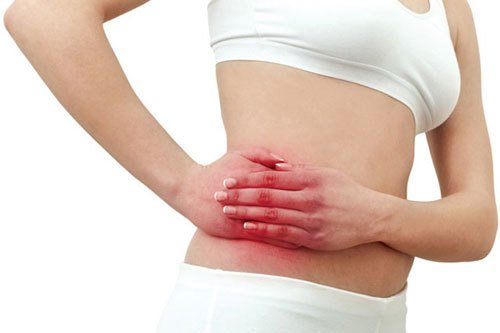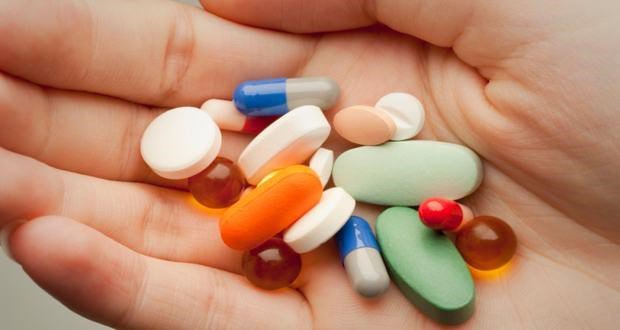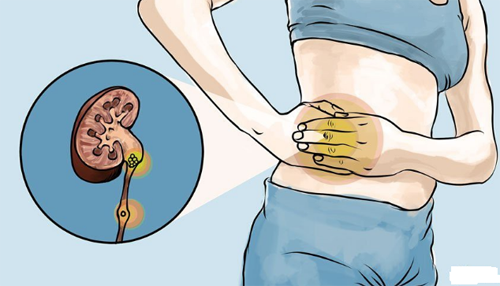The article was consulted professionally by Master, Dr Vo Thien Ling – Doctor of Urology, General Surgery Department, Share99 Da Nang International Health Hub.
Urolithiasis is the deposit of salts and minerals inside the kidneys or ureter, bladder, urethra. Urolithiasis can be found in the urinary path from the kidneys to the ureter (the passage of the canal connecting the kidneys to the bladder) and stones at the bladder, sometimes drifting out to the urethra. In hot and humid tropical countries such as Vietnam, urolithiasis is very common. However, how can very few people identify for themselves how the pain caused by urolithiasis occurs?
1. General understanding of urolithiasis
Urolithiasis is the most common pathology of the urinary tract. Urolithiasis is more common in men than in females. The age of the disease is usually in adults, middle-aged, older. However, there are also exceptions, urolithiasis is encountered in children.
All types of urolithiasis can get out naturally but cause the person a lot of pain. If detected early and treated in a timely manner, urolithiasis will not cause damage to the body and do not leave complications later.
2. How does pain caused by urolithiasis take place?

Urolithiasis usually has no pain symptoms if the pebble is not stuck somewhere in the urinary tract or when the pebble can drift smoothly out. Symptoms of pain caused by urolithiasis usually appear when stones are stuck, stones are large in size and may have appeared complications.
Stones pain caused by urolithiasis has characteristics: severe pain in the hip and back area (where stones are often trapped), the position at the bottom of the ribs, pain that spreads to the lower abdomen, sometimes spreading to the genitals and inner side of the thighs. Pain caused by left or right urolithiasis can occur due to the location of stones that appear in the left or right hip area or both. Pain caused by urolithiasis usually does not have an analgesy position (the one in which the patient feels the pain subsides).
Some patients with urolithiasis have symptoms of urination and/or painful sensations when urinating. Sometimes urine is pink, red or reddish brown, the properties of urine are cloudy or have a bad smell. Some cases of urolithiasis are accompanied by nausea and vomiting, fever and chills. These are dangerous signs, it is possible that you are having a urinary tract infection accompanied by stones.
3. How to treat urolithiasis?

There are many treatments for urolithiasis, depending on the type, size of stones, the location of stones on the urinary tract and the accompanying infection that choose the appropriate method.
For small, low-symptomatic stones, patients can be treated internally with painkillers or drink plenty of water to remove stones.
- Use of analgesics: Non-Steroidal anti-inflammatory drugs such as Diclofenac (Voltaren ampoular 75mg) intravenously, without applied morphine may be considered.
- Use muscle relaxer: Intravenously buscopan, Drotaverin …
- Use of antibiotics When there are signs of infection: Group of 3rd generation Cephalosporins, Quinolons and aminosids.
In the case of larger-sized stones or cases where stones cause pain or cause blockage/decrease in renal function, causing bleeding or infection, more active treatments should be applied:
- Non-invasive treatment techniques: extra-body stone canopy techniques
- Less invasive treatment techniques: endoscopy of cross-skin gravel canopy (PCNL), endoscopyof microscopic cross-skin gravel canopy (Mini PCNL), soft endoscopy of gravel canopy, endoscopy with semi-rigid tubes of gravel canopy, … Currently in Share99 system, all soles are carried out using high power, safe and efficient laser power.
Urolithiasis is like other conditions, the best treatment in medicine is always prevention. Some lifestyle changes are simple but very effective in prevention as well as preventing stones from increasing in size:
- It is advis recommended to drink the necessary amount of water every day, it is best to choose pure water or herbal water.
- Limit oxalates-containing feed.
- Limit salt intake (foods high in salt) and protein from animals
- Consult your doctor before using calcium supplements
For direct advice, please click hotline number or register online HERE. In addition, you can register for remote consultation HERE
- Is the possibility of a decrease in the ability of the kidneys after surgery of kidney stones by the method of spreading stones through the skin treatable?
- What is the drug rowatinex? In dinh, effects and dosage
- Treatment of urolithiasis: Say no to open surgery

